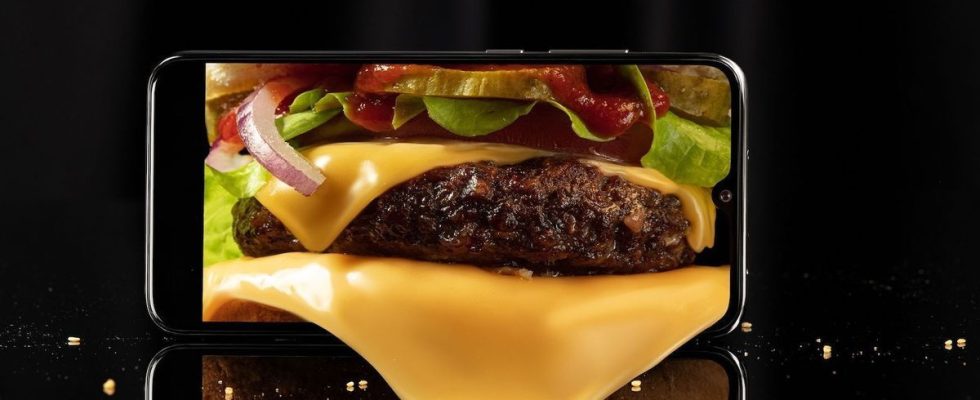Published on
Updated
Reading 2 min.
Exposure to junk food content on social networks affects mood, promotes cravings, and influences users’ food choices. This is what a new study reveals which recalls the importance of improving media education, particularly among younger generations, and of “promoting conscious use of social media”.
“I’m getting fat just looking at him!“. You’ve probably already uttered this sentence when seeing a burger dripping with cheddar on social networks, or even in front of a cooking show, without ever thinking for a moment that this statement could be verified. Researchers from the Lebanese American University However, we have just demonstrated that permanent exposure to these photos, particularly via the hashtag #foodporn on Instagram, could not only harm mood but also promote weight gain. Conclusions which confirm the extent to which social networks can influence the habits and behaviors of users, particularly the youngest.
What is the impact of omnipresent junk food on Insta?
Several scientific studies have already focused on showing the impact of social networks on the physical and mental well-being of users, in particular on their body image. In this new randomized controlled trial, researchers specifically looked at images of junk food, which are omnipresent on social platforms.
To do this, they submitted 63 participants aged 18 to 24 to a questionnaire, then invited them to browse the feed of a control Instagram account or the feed of an account crowded with images of junk food. All for 15 minutes. The young adults then responded to a short survey on their perception of their body image, their mood, and their food desires. A week later, each group played the game again, but with the content reversed.
NO to diets, YES to WW!
Hunger, sadness, exhaustion
Published in the journal Appetite, their work shows a close link between exposure to #foodporn type content and an increased feeling of hunger, sadness and exhaustion, as well as greater cravings for fatty and salty foods. The researchers said that when exposed to junk food, participants were more likely to turn to this type of food, and much less likely to turn to healthy foods. No association was found between junk food content and dissatisfaction with their body image.
“Exposure to junk food-related content on social media negatively affects mood and cravings, thus influencing food choices. The present findings highlight the need for interventions aimed at providing cognitive and emotional skills to improve media literacy and promote mindful use of social media“, we can read in conclusion.
This is not the first time that science has been interested in the impact of this content on users. Researchers at the Massachusetts Institute of Technology (MIT) discovered in 2022 that the visual cortex – the part of the brain that processes information transmitted through the eyes – lit up when images of tempting food appeared. Conclusions that could partly explain why we like seeing such images so much.

